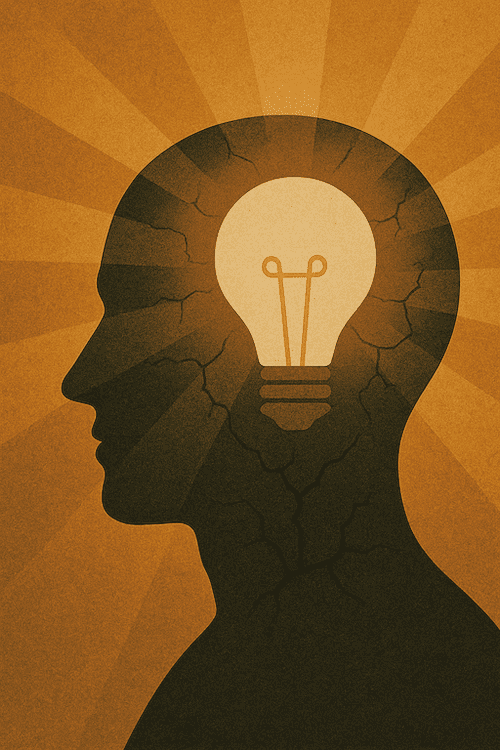Performance Under Pressure in Singapore: Train Mental Toughness That Holds
By Dr. John A. King

G’day. If you’re chasing shortcuts, this isn’t the place. Mental toughness isn’t a finish line or something you inherit. It’s the habit of showing up daily and doing the next right thing when the pressure hits. I teach it like I live it: plain tools, small reps, no fluff.
What I Mean by “Mental Toughness”
Mental toughness in Singapore is the capacity to do the next right thing when your body wants to shut down, your emotions want to explode, and your thoughts are busy lying to you. It is not about white-knuckle heroics. It is consistent, values-aligned behavior under stress. That lines up with what psychologists call resilience: adapting well to adversity through mental, emotional, and behavioral flexibility. [1] (American Psychological Association)
Story: The Night I Stopped Waiting For Motivation
There was a season when sleep felt like a rumor. Rage on a hair trigger. I kept bargaining with myself. Tomorrow I’ll change. Tomorrow I’ll write. Tomorrow I’ll stop snapping at the people I love.
One night I had enough. No big speech. No lightning bolt. I set a timer for five minutes and breathed. Then I wrote one honest paragraph. Then I messaged a mate I had been avoiding and owned my part. That was it. Three small reps. I slept that night. Not perfect, but better. The next day I repeated it. That is how you turn a collapse into a climb. Not with drama, but with deliberate practice. Small reps when nobody is watching.

The Mindfire 3×5: Three Non-Negotiables. Five Minutes Each.
You can build mental toughness in fifteen minutes a day. No special equipment. No motivational theater. Three non-negotiables, five minutes each.

1) Breath Reset
- Five minutes of exhale-heavy breathing.
- In through the nose. Longer out than in. Relax your jaw and shoulders.
- If you want a formal pattern, try an easy 4 seconds in, brief pause, 6–8 seconds out.
Why it works: Slow, exhale-weighted breathing increases heart-rate variability and down-shifts arousal. A 2023 randomized study found that five minutes of “cyclic sighing” improved mood more than mindfulness meditation. Reviews show slow-paced breathing can improve HRV and reduce distress. [2–6] (PMC)
2) Micro-Win
- One tiny win that moves a real goal: reply to one email, lay out gym clothes, clear your desk.
- Make it small enough that you cannot fail.
- Track the win so you can see progress.
Why it works: Progress fuels motivation. Teresa Amabile’s research shows that visible small wins are a primary driver of performance and engagement. [7–9] (Harvard Business Review)
3) Integrity Check
- Ask: “Did I act in line with my values today?”
- If not, correct it now. Apologize. Adjust the plan.
- End the day with one value-aligned commitment for tomorrow.
Why it works: Values-based self-affirmation lowers stress responses and improves problem-solving under pressure. Acceptance and Commitment Therapy research also supports values-aligned action to reduce distress and increase psychological flexibility. [10–12] (UCSB Psychology Labs)
The Science Behind This Approach
- Resilience is skill-based. The APA defines it as a process of adapting well to adversity. Skills can be trained. [1] (American Psychological Association)
- Tiny behaviors beat raw motivation. The Fogg Behavior Model shows behavior happens when Motivation, Ability, and a Prompt converge. Start tiny to increase Ability, then prompt it daily. [13–15] (Fogg Behavior Model)
- Values guardrails reduce stress. Self-affirmation and ACT literature show benefits when behavior aligns with core values during threat. [10–12] (UCSB Psychology Labs)
- Even the military trains this. The U.S. Army’s Master Resilience Training aims to build resilience skills at scale, with evaluations linking training to psychological health outcomes. [16–18] (PubMed)
- Breathing changes state fast. RCTs and reviews show slow or exhale-weighted breathing can improve mood and HRV within minutes. [2–6] (PMC)
- Progress compounds. Small wins are a validated lever for motivation and creativity. [7–9] (Harvard Business Review)
How To Start Today
Morning
- Five minutes of exhale-heavy breathing.
- One micro-win on a meaningful goal.
- Read your values list. Pick one behavior that proves it today.
Midday
- One minute breath reset before a hard conversation.
- Make progress visible: tick off the morning win.
Evening
- Two honest questions: Where did I live my values. Where did I drift.
- If needed, repair the drift now.
Weekly
- Review your small-win log. Circle three that mattered most.
- Increase the smallest step by ten percent, not one hundred percent.
Frequently Asked Questions
Q: Why five minutes
Because smaller is stickier. If you start tiny, Ability is high and you do it daily. Consistency beats intensity. [13–15] (Fogg Behavior Model)
Q: Is mental toughness born or built
Built. You might inherit temperament, but skills like state regulation, micro-goals, and values-aligned action are trainable. [1, 13–15] (American Psychological Association)
Q: I have trauma. Will this help
These tools support regulation and consistency. They are not a replacement for therapy or medical care. Many people use them alongside professional support. See the educational disclaimer below.
Q: How do I measure progress
Track three things: days completed, number of micro-wins, and one sentence about living your values. Review weekly. The pattern will tell you the story.
Q: What if I miss a day
Reset. Do one breath cycle. Log one tiny win. Integrity is not perfection. It is course correction.
Q: Can teams use this
Yes. The “small wins” effect and resilience training both translate to teams. Leaders who highlight progress and practice reset skills see better engagement and performance. [7–9, 16–18] (Harvard Business Review)
Watch Next: Short Videos From My Channel
If you want more, you can also browse my playlists here:
Ready To Train With Me
If this resonates, take the next step with me and the team inside the Phoenix Collective. We developed the Mindfire Challenge for you as a FREE course.
References
- American Psychological Association: “Resilience.” (American Psychological Association)
- Balban MY et al. “Brief structured respiration practices enhance mood and reduce physiological arousal.” Cell Reports Medicine, 2023. Open-access summary. (PMC)
- Chaitanya S et al. “Effect of resonance breathing on HRV, stress, and cognition.” Frontiers in Physiology, 2022. (PMC)
- Meehan ZM et al. “Do longer exhalations increase HRV during slow-paced breathing.” Scientific Reports, 2024. (PMC)
- Li C et al. “Effects of slow breathing on heart rate variability.” Medicine, 2018. (Lippincott Journals)
- Shao R et al. “Slow-paced breathing and cardiovascular function: a review.” Mindfulness, 2024. (SpringerLink)
- Amabile TM, Kramer SJ. “The Power of Small Wins.” Harvard Business Review, 2011. (Harvard Business Review)
- HBS Faculty item: “The Power of Small Wins.” (Harvard Business School)
- Amabile TM, Kramer SJ. The Progress Principle. Harvard Business Press, 2011. (Harvard Business School)
- Sherman DK et al. “Self-Affirmation Interventions.” Annual Review chapter, 2021. (UCSB Psychology Labs)
- Creswell JD et al. “Self-affirmation improves problem-solving under stress.” PLOS ONE, 2013. (PMC)
- Contextual Science: ACT randomized controlled trials list. (ACBS)
- Fogg Behavior Model – official site. (Fogg Behavior Model)
- Stanford Behavior Design Lab resource on B=MAP. (Behavior Design Lab)
- Fogg BJ. “A Behavior Model for Persuasive Design.” Persuasive Technology, 2009. (Google Scholar)
- Lester PB et al. “An empirical assessment of Comprehensive Soldier Fitness.” American Psychologist, 2011. (PubMed)
- Harms PD. CSF Program Evaluation: Resilience training and mental/behavioral outcomes, 2013. (DigitalCommons)
- Knust SK et al. “Master resilience trainer course quality improvement.” BMJ Military Health, 2024. (PMC)
Educational Disclaimer
This article provides general education for building resilience and a performance mindset. It is not medical, psychological, or therapeutic advice. If you are in crisis or dealing with significant symptoms, talk to a qualified professional or call your local emergency number.

